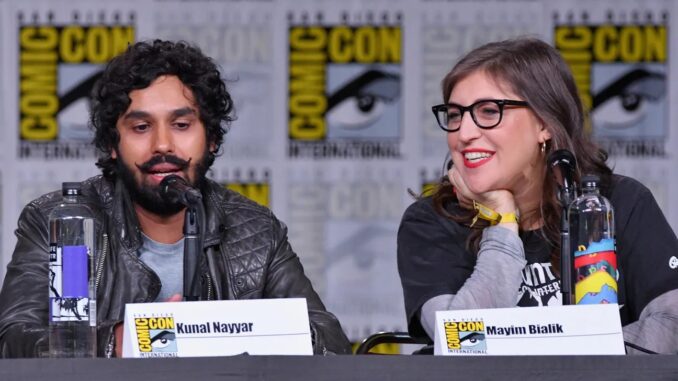
In the world of sitcoms, it’s rare for a show to make a splash at San Diego Comic-Con, especially at the end of its first season. But that’s exactly what The Big Bang Theory did, in a move that surprised everyone involved—especially the cast themselves.
It was Chuck Lorre, the show’s co-creator, who had the idea. He thought it would be “fun” to present the fledgling comedy at the massive fan convention, even lining it up with a panel for the hugely popular Battlestar Galactica. The cast, however, wasn’t so optimistic.

Johnny Galecki (Leonard) reportedly predicted a “doomsday” scenario, convinced that no one would show up. His apprehension was shared by the rest of the cast and even Lorre himself. Their reasoning was sound: Comic-Con was, at its heart, a haven for comic book enthusiasts and science fiction fanatics. The Big Bang Theory, while centered around a group of socially awkward scientists and their aspiring actress neighbor, was fundamentally a comedy. They just didn’t see the overlap.
But what they found upon their arrival blew them away. Thousands of fans had camped overnight, not for Battlestar Galactica, but for The Big Bang Theory! Kaley Cuoco (Penny) recalled repeatedly asking, “Which show are you here for?” because she simply couldn’t believe the turnout was for them.
The cast was greeted like rock stars—like The Beatles, in fact. Fans were dressed up as their favorite characters, from Sheldon Cooper’s distinctive T-shirts to Howard Wolowitz’s quirky outfits. Every single cast member described having tears in their eyes, overwhelmed by the outpouring of love and dedication from their burgeoning fanbase.
This unexpected reception at Comic-Con was a pivotal moment. It showed the cast and creators that their quirky sitcom had already tapped into a passionate audience who saw themselves, or aspects of themselves, reflected in the characters. It was clear then that The Big Bang Theory was more than just a comedy; it was resonating deeply with the very “nerd” culture it affectionately portrayed, a culture that embraced them with open arms.
